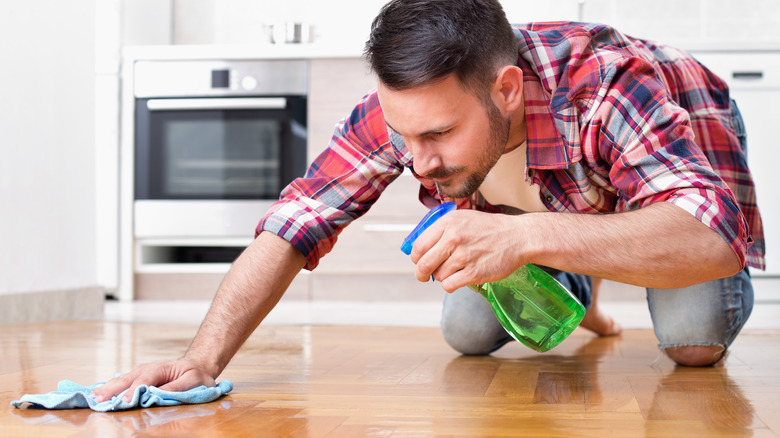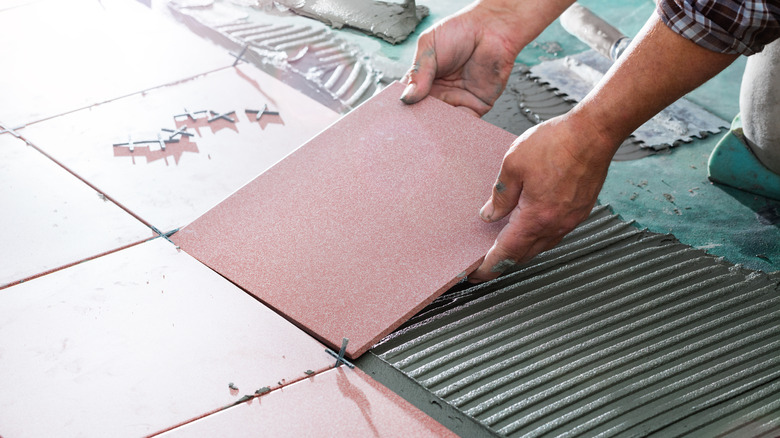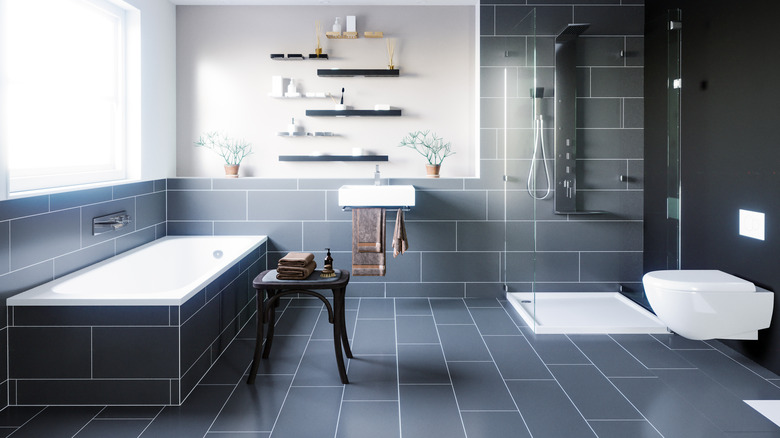A Cleaner Home Because Of Your Flooring? Here's How
As antimicrobial technology advances, it is becoming more common to see it in products like textiles and paints, so it's no surprise there are antimicrobial flooring options now too. Tile, vinyl, carpet, concrete, and cork are all available with antimicrobial treatments, promising to inhibit the growth of microorganisms, thus preventing the spread of deadly bacteria and viruses among your family members. Given the concerns regarding the spread of disease since the COVID-19 pandemic, as a consumer, you might be interested in looking for additional ways to protect your home.
Antimicrobial flooring is already used in places like hospitals and other facilities where hygiene is of the utmost importance. If food preparation or healthcare is involved, there's a chance the building has antimicrobial flooring installed, so obviously its effectiveness is trusted by the professionals. The question is whether or not it's really necessary for your home, where it would be most effective, and how to get it.
Where to get and use antimicrobial flooring
The actual antimicrobial properties can either be present in the flooring itself, in the underlayment, or in a treatment that's applied on top. For example, to better protect carpet from mold and mildew, particularly in basement remodels where a lot of moisture might be present, an antimicrobial underlayment is usually recommended. Or, if you have a concrete floor in your utility or laundry room, you can have it treated with an antimicrobial coating without having to blast the surface or otherwise prepare it in any way.
Other options include ceramic tiles and vinyl flooring in dozens of patterns and styles that are made with antimicrobial additives in the manufacturing process. Whether you have these professionally installed or decide it makes a good DIY project, there's no difference when installing these options than ones without antimicrobial properties, though there might be a slightly higher price for the extra feature.
Is antimicrobial flooring worth it?
Much like with antimicrobial paint, antimicrobial flooring is likely to be most effective in areas of your home that are exposed to excessive moisture, like your kitchen, laundry, and bathrooms. The reason for this is that while the antimicrobial agents in flooring are capable of killing everything from algae to yeast, you're not likely to encounter any of these microbes in large quantities in other areas of your home. Worms, parasites, protozoa, bacteria, mold, and fungi all love damp, dark places, so that's where they're likely to proliferate. If you have pets tracking in mud, or if there was a flooding incident, cleaning the area with a disinfectant should suffice.
If you are renovating your home or even just a room, it's worth looking at what flooring options are available with antimicrobial properties and comparing the price difference. Additionally, there's no substitute for peace of mind. If the thought of tiny microorganisms growing in your home keeps you up at night and you have the budget, make the investment and save yourself the worry.


